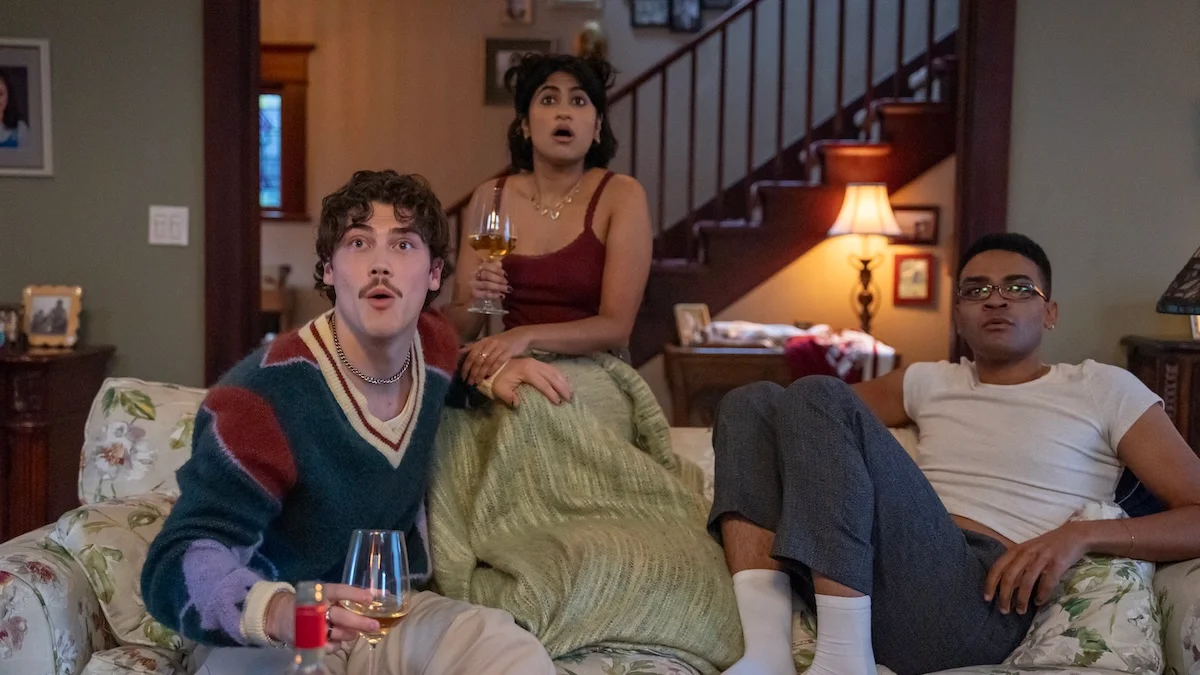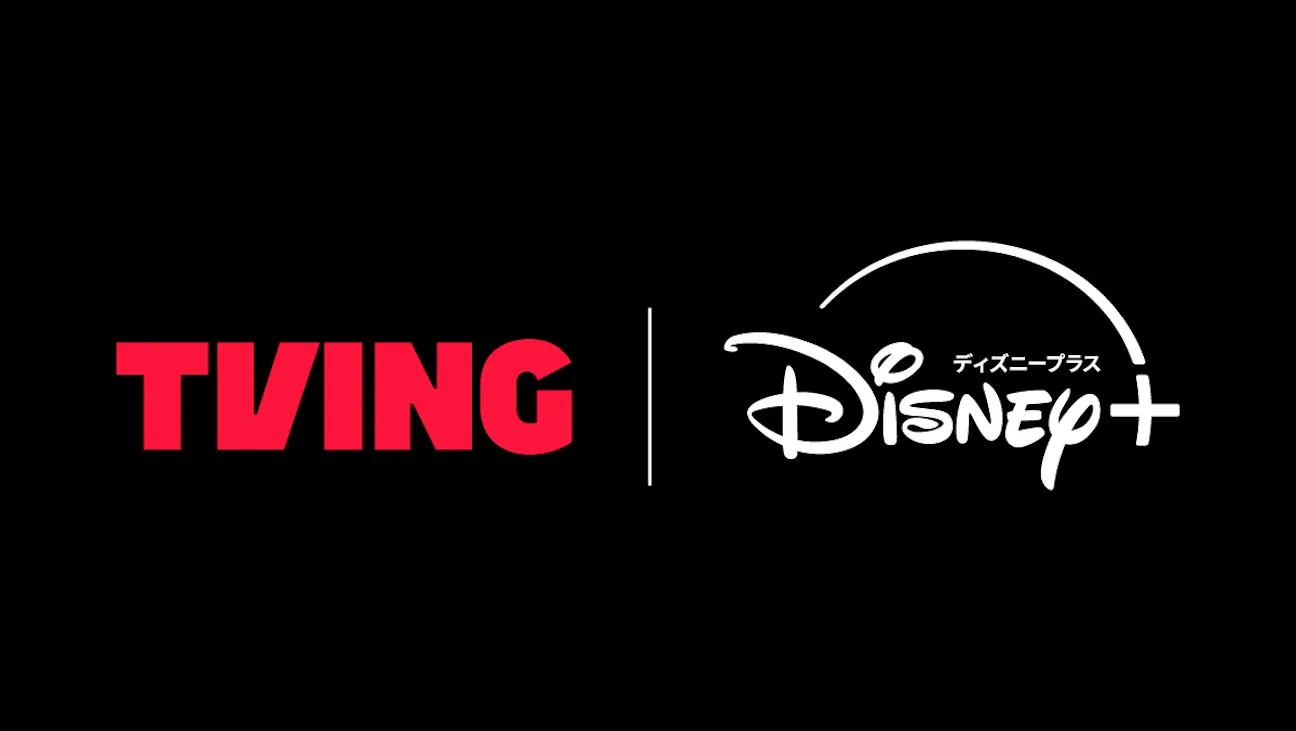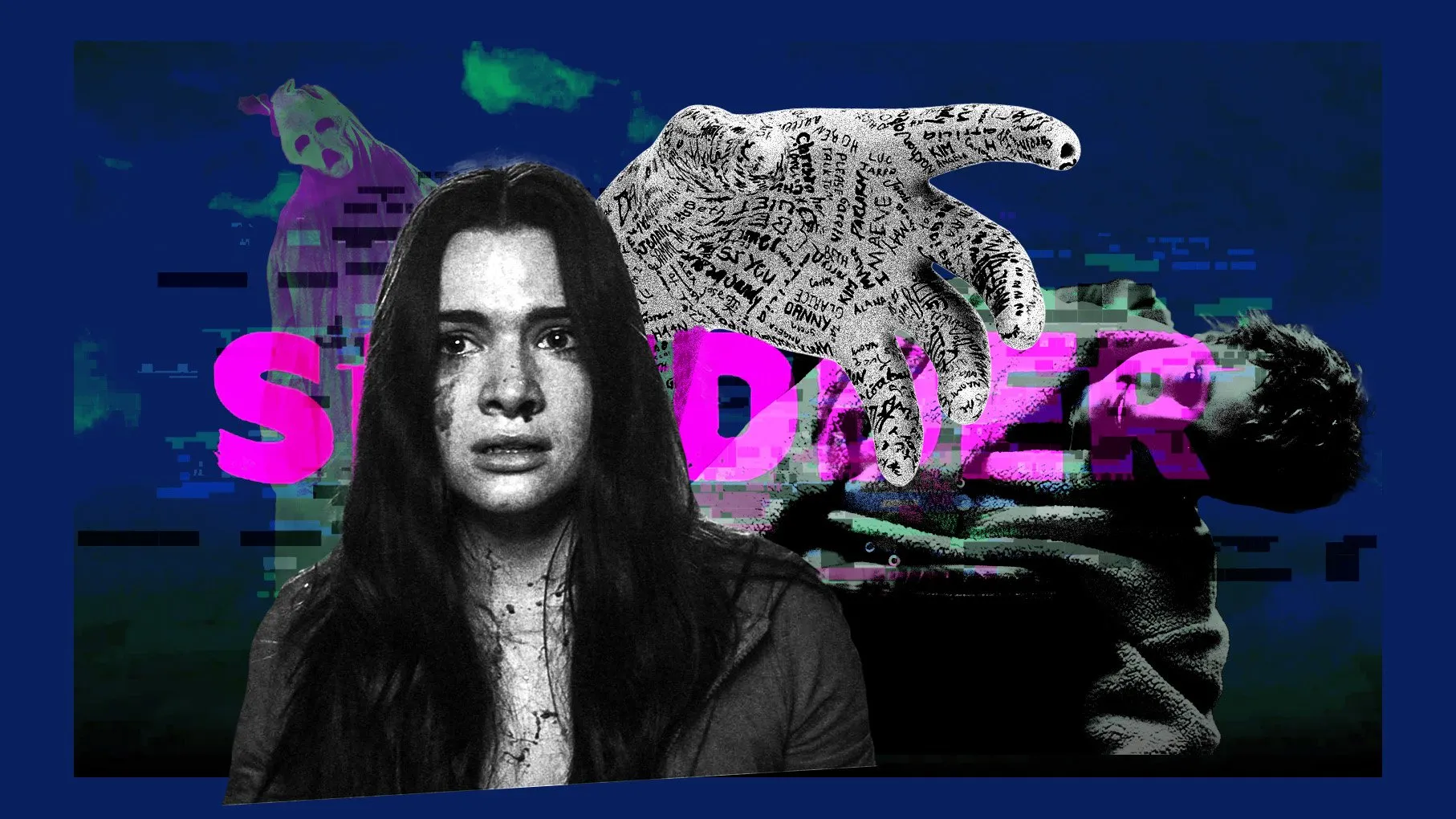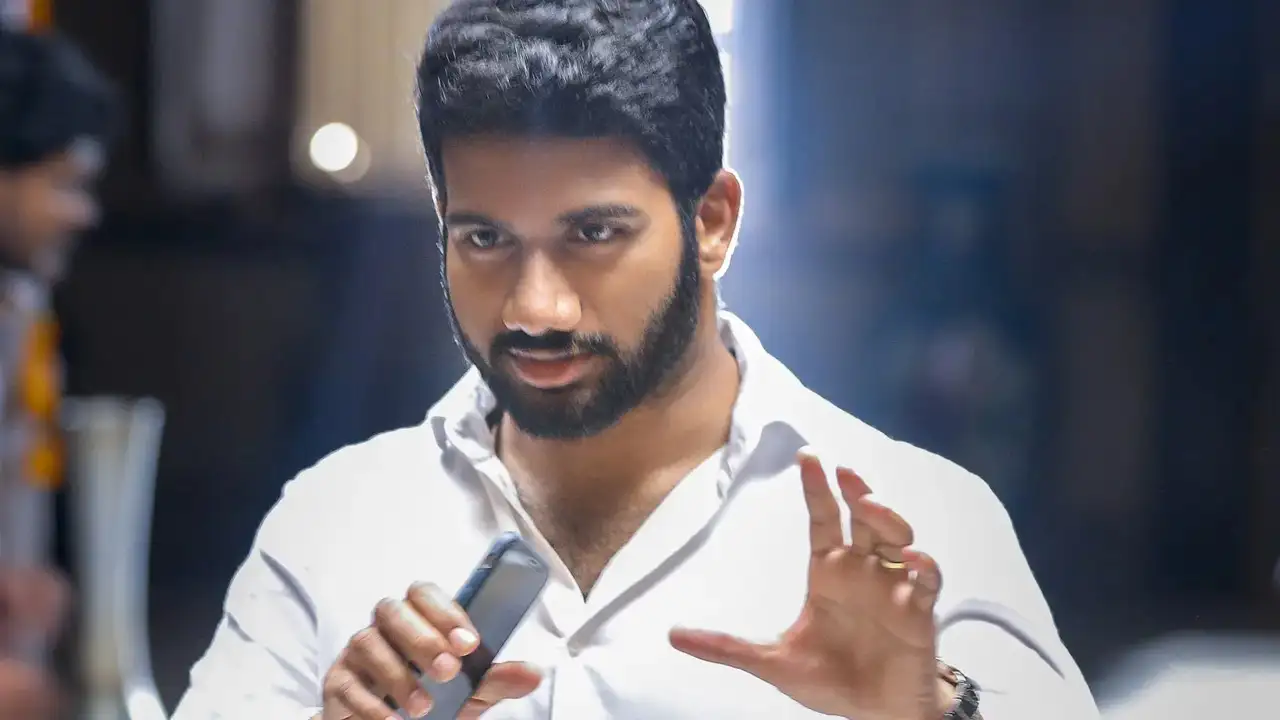Copyright thejournal

We need your help now Support from readers like you keeps The Journal open. You are visiting us because we have something you value. Independent, unbiased news that tells the truth. Advertising revenue goes some way to support our mission, but this year it has not been enough. If you've seen value in our reporting, please contribute what you can, so we can continue to produce accurate and meaningful journalism. For everyone who needs it. One-off amount I already contribute Sign in. It’s quick, free and it’s up to you. An account is an optional way to support the work we do. Find out more. Investigates Investigates Money Diaries The Journal TV Climate Crisis Cost of Living Road Safety Newsletters Temperature Check Inside the Newsroom The Journal Investigates Daft.ie Property Allianz Home The 42 Sport TG4 Entertainment The Explainer A deep dive into one big news story Sport meets news, current affairs, society & pop culture have your say Or create a free account to join the discussion Advertisement More Stories Alamy Stock Photo human nature Dealing with grief Life's worst moments can lead us to connecting with ourselves and each other James O’Connell reflects on processing difficult emotions and breaking down a culture of brushing big feelings under the rug. 7.01pm, 2 Nov 2025 Share options FOR SEVERAL YEARS, I have been strongly drawn to the breakdown/breakthrough phenomenon in human life. I would consistently gravitate towards people or stories that demonstrated our innate capacity to use loss on a profound level to grow into more loving, connecting and grateful beings. I think I was partly so interested in this possibility for positive change because in my own life I was more familiar with the destructive potential of loss. I have seen people become bitter, angry, hardened and deeply depressed when faced with such losses and remain so for decades. This process is beautifully described by musician Nick Cave: “You either go under, or it changes you, or worse you become a small hard thing that has contracted around an absence. Sometimes you find a grieving person constricted around the thing they have lost; they’ve become ossified and impossible to penetrate.” This presence is impossible to ignore and leaves an imprint. I lost the two most important women in my life at an early age. I also lost my sense of identity and perspective of the world a few times. I don’t know if I have fully grieved or processed these losses but they have certainly increased my tendency to empathise with others who are both hiding from and coming to grips with tremendous loss. Part of why I’m writing this is to try and enliven this capacity even more in me because I still judge and invalidate the experience of others. In these moments of judgement and disengagement, I am forgetting the deep truth that we all experience loss that leaves us feeling numb, hopeless and alone. I am forgetting that most people we meet are struggling with or battling against the grief that comes with significant loss. I am forgetting that in these exacts moments, humans critically need support and connection. What I hope to express is that we are absolutely not alone with this experience and if we can maintain this truth within our being during the grieving process, it might just be the hand that guides us into a deeper way of living. Living in such a way that our devastating, life-changing heartbreak served as a means for us to be more sensitive to the inevitable loss others and ourselves will meet in the future, and in doing so, become a complete person. When speaking about loss, grief and transformation, Nick Cave stated: “…this will happen to everybody at some point – a deconstruction of the known self. It may not necessarily be a death, but there will be some kind of devastation. And it shatters them completely, into a million pieces, and it seems like there is no coming back. It’s over. But in time they put themselves together piece by piece. And the thing is, when they do that, they often find they are a different person, a changed, more complete person, more realised, more clearly drawn person. I think that’s what it is to live, really – to die in way and to be reborn. And sometimes it can happen many times over, that complex reordering of ourselves.” The suggestion that many of us are not ‘fully human’ or ‘complete person’ as we are right now may frustrate and offend readers. However, most of us agree that there are different stages of human development. These stages might not have been fleshed out and clearly signposted by each individual but many of us have internal gauges regarding to what extent a human is progressing in a culture or society. There are countless different interpretations of what is considered to be a fully developed adult. What I am pointing towards with the term ‘fully human’ in this piece is the awareness that we have in each one of us, a powerful ability to experience and connect with the human experience, with ourselves, loved ones and strangers alike by using the portal of our own experience. While not always the case, this process is frequently initiated by the most crushing of life circumstances. In today’s Western consumerist culture, which mostly lacks meaningful rites of passage that help us grow into responsible and thoughtful people, losing what we care about most may be one of the few powerful experiences that reminds us how deeply connected we all are as human beings. Advertisement Canadian philosopher Jean Vanier describes this process as a precious discovery that can occur after coming face to face with our delicateness “To be fully human is really to discover who I am. And who am I? I’m a member of the huge human family (…) We were born in weakness. We will grow. And we will die. So the story of each one of us is a story of accepting that we are fragile.” A strikingly similar reflection was made by Nick Cave. Commenting on what happened to him internally after his son suddenly passed away, he said: “Each life is precarious and some of us understand it and some don’t. But certainly everyone will understand it in time. And because of that, I feel a kind of empathy with people that I never felt before. (…) And I believe that is because I became a person after my son died. Not part of a person, a more complete person.” The people, the animals, the home, the worldview, the safety, even the conception of ourselves that we love and grow attached to can leave us anytime. There are of course, more extreme circumstances than others but the fact remains the same for all of us: we know loss. Unfortunately, we do not have a society or an overriding culture that allows us to fully feel this loss or to harnesses this reality for the improved connection of humanity. I’ve noticed that our culture—often driven by self-centred and immature behaviour—can make it hard for me to face and fully process my strong emotions. I’ve also heard many others say they feel the same way. Bill Plotkin, who has researched the area of human development for decades, believes that much of our culture is stuck in the adolescent stage of human development. This stage, in his words is characterised by an: “Egocentric existence focused upon the attempt to look good to others; to conform and/or to rebel against the ordinary and mainstream; to ‘get ahead’ in the dog-eat-dog competition for material possessions, financial wealth, and social status; and to minimize the experience of challenging realities by way of addictions.” In such a mode of being it can prove incredibly challenging to acknowledge and feel our own fragility never mind to use this tenderness to attend to others who are struggling with the confronting nature of loss. In his touching book The Smell of Rain on Dust, Grief and Praise, Martin Prechtel insightfully notes: “Most personal grief goes unattended because people don’t trust the world they live in to hold them in those times, and let them be messy and unusual long enough for grief to happen (…) they can’t trust people not to judge them later for their actions”. I’m sure many of us can relate to this analysis. We avoid or repress our pain because we don’t think the people around us will respond with present compassion and acceptance. As a result, we walk around with undigested grief. If only we knew that this collective, unacknowledged grief Prechtel refers to is actually our untapped potential — the chance to feel the deep pain of life’s fragility and, through that, to discover a profound sense of empathy and connection with all humanity. James O’Connell is a writer, podcaster and the Programmes Manager of the Sanctuary, a meditation centre and charity in Dublin 7. Readers like you are keeping these stories free for everyone... A mix of advertising and supporting contributions helps keep paywalls away from valuable information like this article. Over 5,000 readers like you have already stepped up and support us with a monthly payment or a once-off donation. Support The Journal James O'Connell Viewcomments Send Tip or Correction Embed this post To embed this post, copy the code below on your site Email “Dealing with grief: Life's worst moments can lead us to connecting with ourselves and each other”. Recipient's Email Feedback on “Dealing with grief: Life's worst moments can lead us to connecting with ourselves and each other”. Your Feedback Your Email (optional) Report a Comment Please select the reason for reporting this comment. Please give full details of the problem with the comment... This is YOUR comments community. Stay civil, stay constructive, stay on topic. Please familiarise yourself with our comments policy before taking part. Leave a Comment Submit a report Please help us understand how this comment violates our community guidelines. Damaging the good reputation of someone, slander, or libel. Racism or Hate speech An attack on an individual or group based on religion, race, gender, or beliefs. Trolling or Off-topic An attempt to derail the discussion. Inappropriate language Profanity, obscenity, vulgarity, or slurs. Advertising, phishing, scamming, bots, or repetitive posts. Please provide additional information Thank you for the feedback Your feedback has been sent to our team for review. Leave a commentcancel Newly created accounts can only comment using The Journal app. This is to add an extra layer of security to account creation. Download and sign into the app to continue. Access to the comments facility has been disabled for this user View our policy ⚠️ Duplicate comment Post Comment have your say Or create a free account to join the discussion Human Development human nature News in 60 seconds Here's What Happened Today: Sunday spending and saving Money Diaries: An investment banker on £112K who moved to London last year Cambridgeshire Only one man now a suspect in train stabbing in England as police rule out terrorism 57 mins ago South Tyrol Five German mountaineers die in northern Italy after being hit by avalanche Prayers said for Troubles Disappeared who remain missing Drogheda Ipas arson Gardaí investigating alleged arson believe fire at Drogheda Ipas centre was ‘started deliberately’ Path to Power Matt Cooper 'gobsmacked' to learn of co-host Ivan Yates's involvement with Fianna Fáil campaign Cambridgeshire Only one man now a suspect in train stabbing in England as police rule out terrorism 57 mins ago Rain warning issued for four counties this evening Tyrrelstown Man arrested in probe into death of man who presented at hospital with serious injuries N7 collision Two men (30s) die in separate road incidents in Kildare and Galway more from us Investigates Money Diaries The Journal TV Journal Media Advertise With Us About FactCheck Our Network FactCheck Knowledge Bank Terms & Legal Notices Terms of Use Cookies & Privacy Advertising Competition more from us TV Listings GAA Fixtures The Video Review Journal Media Advertise With Us Our Network The Journal FactCheck Knowledge Bank Terms & Legal Notices Terms of Use Cookies & Privacy Advertising Competition © 2025 Journal Media Ltd Terms of Use Cookies & Privacy Advertising Competition Switch to Desktop Switch to Mobile The Journal supports the work of the Press Council of Ireland and the Office of the Press Ombudsman, and our staff operate within the Code of Practice. You can obtain a copy of the Code, or contact the Council, at https://www.presscouncil.ie, PH: (01) 6489130, Lo-Call 1800 208 080 or email: mailto:info@presscouncil.ie Report an error, omission or problem: Your Email (optional) Create Email Alert Create an email alert based on the current article Email Address One email every morning As soon as new articles come online



